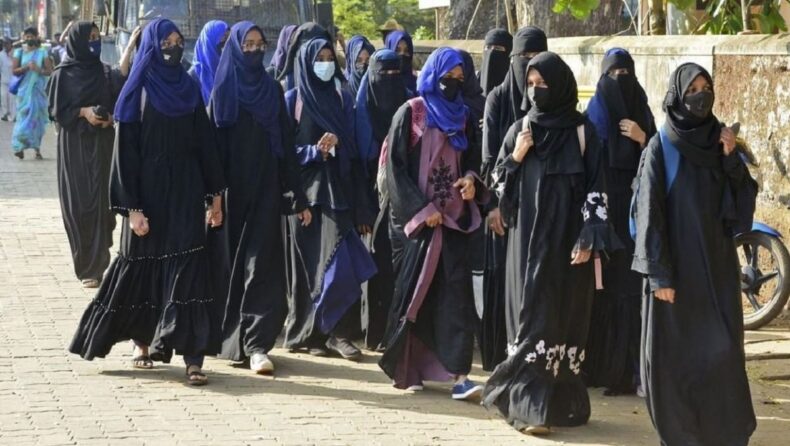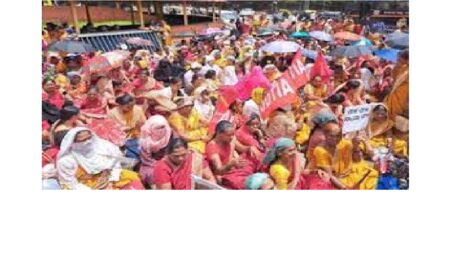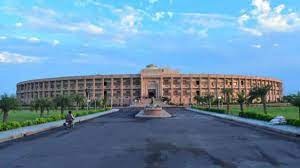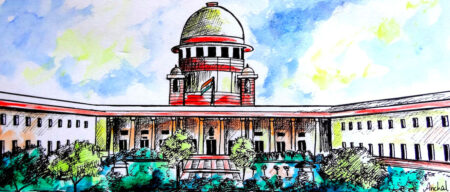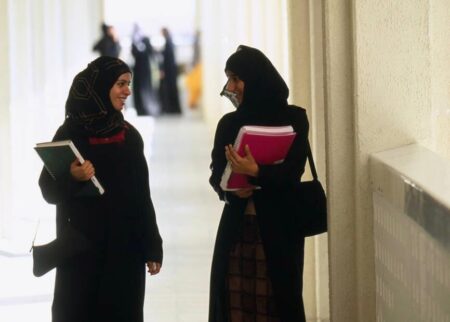On Tuesday, the Karnataka high court in Bengaluru dismissed petitions filed by a section of Muslim students from the Government Pre-University Girls College in Udupi, seeking permission to wear hijab in class.
The three-judge bench of the court stated that the requirement of a school uniform is a reasonable, constitutionally permissible constraint that students cannot object to, the three-judge bench of the court stated.
The state government has banned mass gatherings for a week in Bengaluru ahead of the ruling “to ensure public peace and order.” From March 15 to 19, Mangalore, too, prohibited large gatherings.
Udupi’s schools and colleges have been closed for today due to the deployment of police at the PU college.
The Disagreement
- The controversy over the hijab erupted in Karnataka late last year when students at a school in Udupi alleged that they were stopped from entering class wearing headscarves.
- The Karnataka High Court then temporarily banned religious clothes, including hijab and saffron scarves, last month as the controversy snowballed into protests and a face-off between different sections of students was spurred.
- The petitioners, including a dozen Muslim students, told the court that wearing the hijab was a fundamental right guaranteed under India’s constitution and an essential practise of Islam.
- After eleven days of hearings, the High Court reserved its judgement until February 25.
Karnataka’s Chief Minister on the Decision
Basavaraj Bommai, the chief minister of Karnataka, stated on Tuesday that “everyone should obey” the verdict of the high court in Bengaluru on the wearing of a hijab (headscarf) in schools and colleges after the court maintained his government’s decree from February 5.
He said, “Everyone should follow the court order for the benefit of the children.” It is a question of the fate and education of our children. Necessary arrangements have been made to maintain law and order.
More viewpoints on this matter
In response to the hijab decision taken on Tuesday, MS Sajid, the National President of Campus Front of India (CFI), in response to the hijab decision, said that the high court is denying the constitutional rights of citizens.
He also stated that the students do not accept the verdict because it is a violation of the constitution and that they will continue their fight against measures to curtail individual rights.
BG Nagesh, Minister for Primary and Secondary Education, remarked that the shortcomings of the Karnataka Education Act would be rectified. Students are engaged with the decision taken by the high court and have said that they will take this matter to the Supreme Court.
Published by – Kiruthiga K
Edited by – Khushi Thakur







